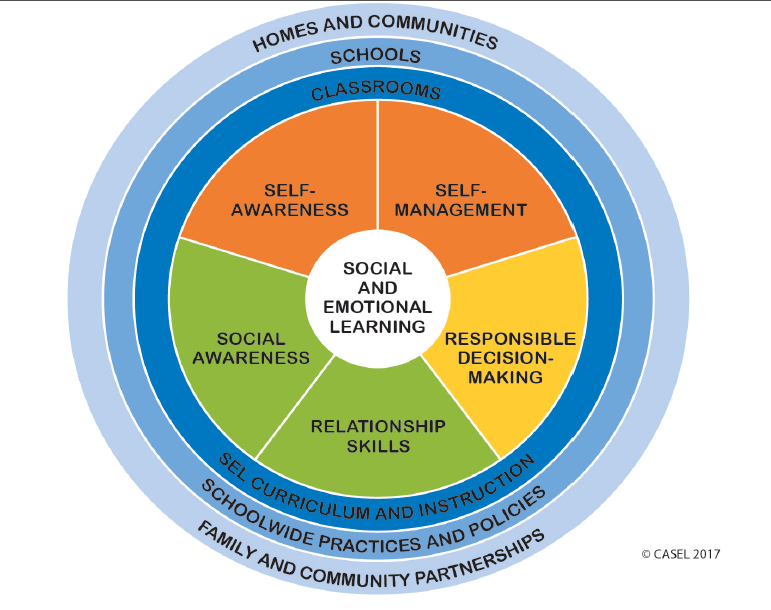How the “Whole Child” Approach is Transforming Education in Delaware
As concerns about over-testing and overemphasizing test scores persist, the “whole child” approach to education is gaining ground. The non-academic attributes that prepare young people for success in the real world—think character, grit, and growth mindset—are beginning to take a more prominent place in the education reform conversation. A new focus on the whole child could be transformative to K-12 education.
Here are some of the main ideas behind the whole child approach and its connection to social and emotional learning. Then we’ll get you up to speed with what’s already taking place in Delaware.
Social and Emotional Learning 101
Experts agree that student success depends on more than grades. The whole child approach takes into account environmental factors in the classroom and at home, where children develop their social and emotional skills. But what exactly is social and emotional learning?
According to the Collaborative for Academic, Social, and Emotional Learning (CASEL), social and emotional learning is defined as the process through which students acquire and effectively apply the knowledge, attitudes, and skills necessary to understand and manage emotions, set and achieve positive goals, feel and show empathy for others, establish and maintain positive relationships, and make responsible decisions. In other words, it’s how students develop the skills and dispositions to be successful in school, work, and life.
Social and emotional skills are more influenced by environmental factors than we thought. Factors such as poverty, education level, food security, discrimination, and housing play a big role in the process through which students deal with stress, how they communicate, and social awareness. For example, students who face consistent turmoil in their home lives may have more difficulty focusing on schoolwork or building relationships with their peers. That in turn can influence how a student performs in school—both behaviorally and academically. There are evidence-based approaches to supporting students and helping them develop coping skills and other strategies for managing the stress and overcoming these obstacles.
Focusing on social and emotional learning pays off—for students and teachers. According to a meta-analysis of more than 200 studies involving more than 270,000 students, not only did students participating in evidence-based SEL programs show an 11 percent gain in academic achievement, but they also showed:
- Improved classroom behavior
- Better stress management
- Higher self esteem
- Improved attitude about others and school
Social emotional learning is already transforming K-12 education in Delaware
From policy recommendations and conferences to local research and school-level programs, Delaware is already taking the lead when it comes to implementing social and emotional learning as a whole child approach.
Student Success 2025
Social and emotional Learning is embedded in each of the six core areas of Student Success 2025. Student Success 2025 put forth more than 40 recommendations that take a whole child approach to education—including counseling supports for students, an equitable funding system that takes into account student characteristics and needs, wrap-around services, home visiting for early learners, and a more holistic approach to physical and mental health services.
Western Sussex Summit
With a focus on meeting the social and emotional needs of all students, the annual Western Sussex Summit is a collaborative professional development conference hosted at Woodbridge High School and attended by educators and specialists, as well as mental health organizations and state agencies. Check out their website for post-summit materials and additional social and emotional resources.
Compassionate Schools Learning Collaborative
With support from a Casey Family Programs grant, over 1,500 educators in Delaware have received training on trauma and its impact on brain development, learning, and behavior. The Compassionate Schools Learning Collaborative meets quarterly to share effective trauma-responsive practices, including self-care strategies for educators from multiple schools across the state. Check out their page on the Delaware Department of Education website to access additional resources.
Delaware Positive Behavior Support Project (PBS)
PBS is coordinated, data-based decision making and instructional programming that focuses on teaching adaptive behaviors and discouraging disruptive behaviors. Currently, 147 public schools across the state are implementing PBS, with substantial implementation support and technical assistance from UD’s Center for Disabilities Studies.
Delaware “Whole Child” Surveys
There are a number of surveys in Delaware that measure various aspects of students’ physical, mental health, as well as the school climate, which also have effects on student’s social and emotional wellbeing.
- Youth Risk Behavior Survey (YRBS)
- The Delaware School Climate Survey (DSCS)
- The Delaware School Survey
How Can You Get Involved?
- Are you an educator in Delaware? The Rodel Teacher Council is conducting a survey to learn your thoughts on social and emotional learning.
- Parents, ask your child’s teachers how they support whole child development in your school, and whether there are ways you can get involved. Also, check out this seminar by the Parent Information Center of Delaware, Inc. on March 14: “The Impact of Stress and Trauma on Your Child and What You Can Do About It” with Dr. Eric Rossen, PhD, NCSP.
- Students, check out the United Way IM40 initiative, which features more than 50 organizations that help develop social and emotional assets.
- Check out the Delaware Inclusion Conference on Wednesday, March 15th at Dover Downs.

